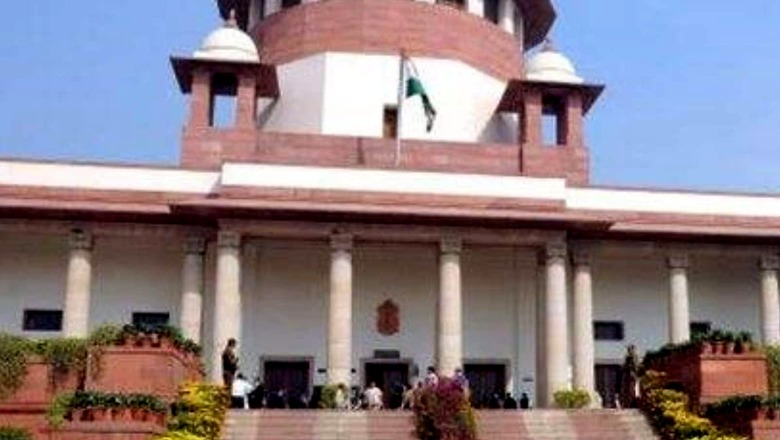
views
A law student has moved the Supreme Court seeking intervention in the pleas challenging the Centre’s decision to abrogate provisions of Article 370 which had given special status to Jammu and Kashmir. The plea filed by Nikhil Upadhyay supported the centre’s decision contending that Article 370 was intended to be a temporary, transitional and special provision and was not meant to be permanent.
The plea filed through advocate Ashwani Kumar Dubey stated the intent behind incorporating a special provision for the State of Jammu and Kashmir was necessitated in light of the then prevailing social-political conditions, and more relevantly the Instrument of Accession as entered into between the Union of India and the then Ruler of the State. The top court on April 25 agreed to consider listing after summer vacation the pleas challenging the Centre’s decision to abrogate provisions of Article 370 which had given special status to Jammu and Kashmir.
A bench comprising Chief Justice N V Ramana and Justice Hima Kohli had taken note of the submissions of senior advocate Shekhar Naphade, appearing for one of the petitioners, that the plea needed an urgent hearing in view of the delimitation exercise being carried out in the state. The apex court had agreed to re-constitute a five-judge bench to hear pleas after summer vacation.
Several petitions challenging the Centre’s decision to abrogate provisions of Article 370 and the Jammu and Kashmir Reorganisation Act, 2019, which splits J-K into two Union Territories Jammu and Kashmir, and Ladakh were referred to a Constitution Bench headed by Justice N V Ramana in 2019 by the then CJI Ranjan Gogoi. 370, the Central government had revoked the special status of Jammu and Kashmir.
Besides Justice Ramana, Justices Sanjay Kishan Kaul, R Subhash Reddy (since retired), B R Gavai, and Surya Kant were part of the bench which, on March 2, 2020, had declined to refer to a larger seven-judge bench the batch of petitions challenging the constitutional validity of the Centre’s decision to abrogate provisions of Article 370 on August 5, 2019. NGO, People’s Union of Civil Liberties (PUCL), Jammu and Kashmir High Court Bar Association, and an intervenor had sought referring of the matter to a larger bench on the ground that two judgements of the apex court — Prem Nath Kaul versus Jammu and Kashmir in 1959 and Sampat Prakash versus Jammu and Kashmir in 1970 — which dealt with the issue of Article 370 were conflicted each other and therefore, the current bench of five judges could not hear the issue. The five-judge bench, which would hear the pleas, will have to be reconstituted as Justice Reddy has retired in January this year.
Read all the Latest News , Breaking News and IPL 2022 Live Updates here.




















Comments
0 comment